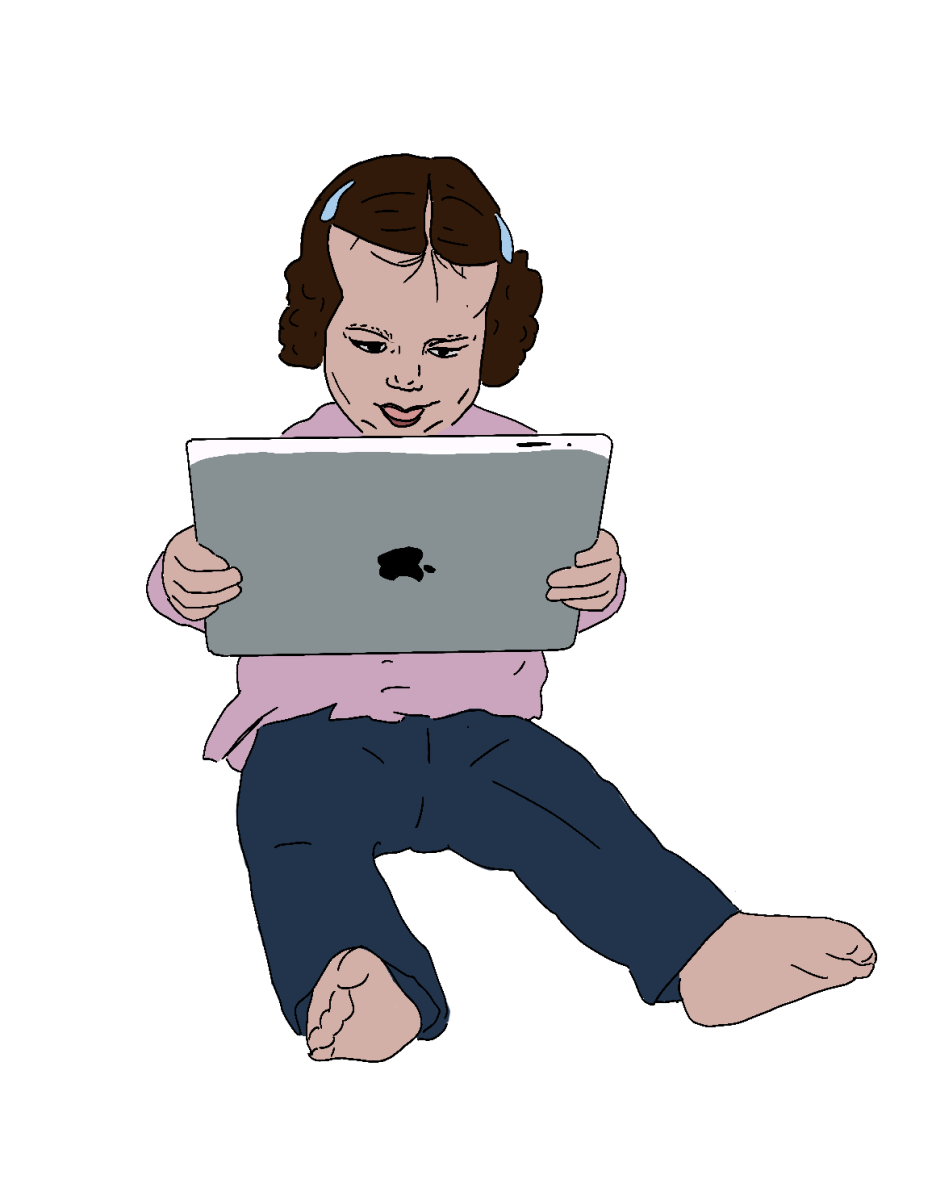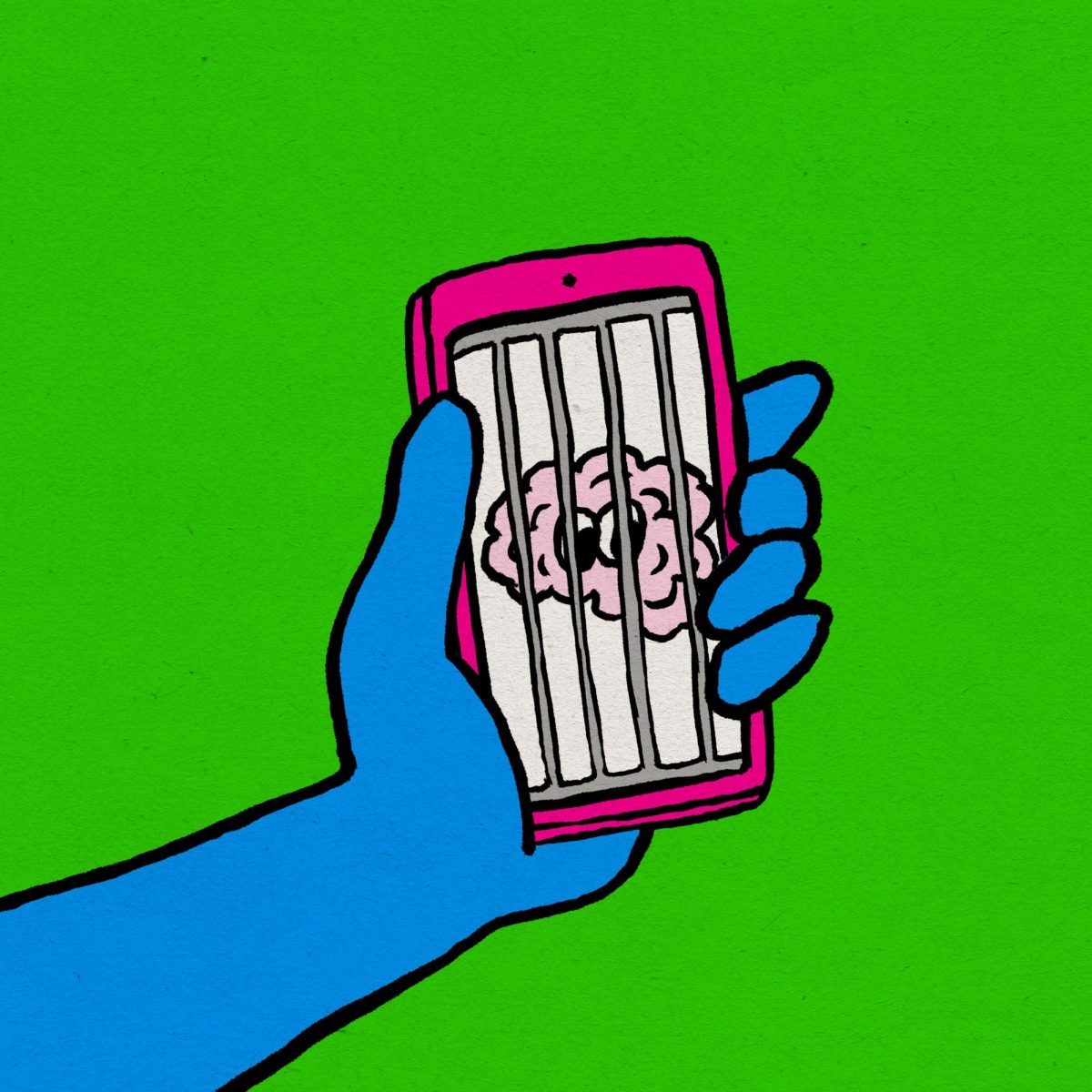This past August, as I approached my departure gate in John F. Kennedy International Airport and threw myself across the nearest chair, I noticed a scene so jarring and unsettling it made me question the behavioral trajectory of the newest generation of children. To my left sat a well-mannered toddler whose calm and quiet demeanor was noticeably abnormal for a child of his age. A pacifier hung loosely from his drooling mouth and his eyes contained a firm and determined gaze, fixed on an iPad so massive it dwarfed him entirely. I sat in awe as he navigated the screen effortlessly, tracing lines of grease with each swipe of his chubby little fingers.
My keen observation was interrupted by two spatially unaware young boys sprinting past me. Trailing behind them was a clearly exhausted mother, attempting to contain their overflowing energy as they weaved between chairs and crawled shamelessly around the floor. She begged them to tame their raucous rampage, but her pleas were met with intentional disregard. That is, until, like a magician conjuring a rabbit from his hat, she drew two sleek iPads from her tote bag. She handed each boy a tablet and, within a matter of seconds, they had bounded to two chairs, eager to start bathing in the blue light projecting from the screens held mere inches from their faces. It was as though they had been tranquilized, injected with some form of sedative and put into a trance by their devices.
“Look at every kid here,” said my mom, who had also noticed the alarming trend: every child of ten years or below had their head buried in a screen, noise-canceling headphones secure, gaze impenetrable, parents relieved. My initial reaction was to condemn the parents who were so blatantly fostering their children’s screen addictions. But the motivation for parents to feed their children iPads and tablets is understandable — why try to negotiate good behavior with a terrible two-year-old or a confrontational little boy when a screen could save you the work and guarantee the result you seek?
I can recognize the temptation to take the easy escape route from a child’s persistent wails or misbehavior, but what cannot be ignored is a troubling question: What integral aspects of childhood are sacrificed as a result of hardwiring young children to perk up at the Apple startup sound? What might the repercussions be for a generation of children who would thoughtlessly trade all the Webkinz, Legos and Polly Pockets in the world for an iPad, who would rather play Candy Crush than Candy Land, and who are more familiar with an Apple Pen than a pack of scented Crayola markers?
A study by JAMA Pediatrics released earlier this year sought to investigate this phenomenon through their research on the consequences of screen exposure on child development. The study surveyed over 7,000 mother-child pairs over the course of four years, grouping each pair based on their average hours of daily screen exposure. Researchers concluded that those who had higher levels of screen exposure throughout their childhood experienced significant developmental delays in communication and problem solving skills.
The World Health Organization echoed this claim in 2019, suggesting that in order to improve sleep quality and cognitive and motor development, infants under one year old should not use screens at all, and those from ages two to four should spend no more than one hour a day on screens. Further evidence concerning the harmful nature of screens found a negative correlation between the amount of time a toddler spent watching videos and their language development: one additional hour of videos for infants resulted in a reduction of six to eight words spoken per day.
The reams of newly published research delving into the consequences of screens on early childhood development reveal the disquieting reality that electronics intended to promote communication, connection and education have had quite the opposite effect. Thus, it is my fear that if parents fail to recognize the dangers of using screens to babysit their children, we will end up with a drooling, speechless generation who can connect with Wi-Fi and Bluetooth better than they can with other people.















